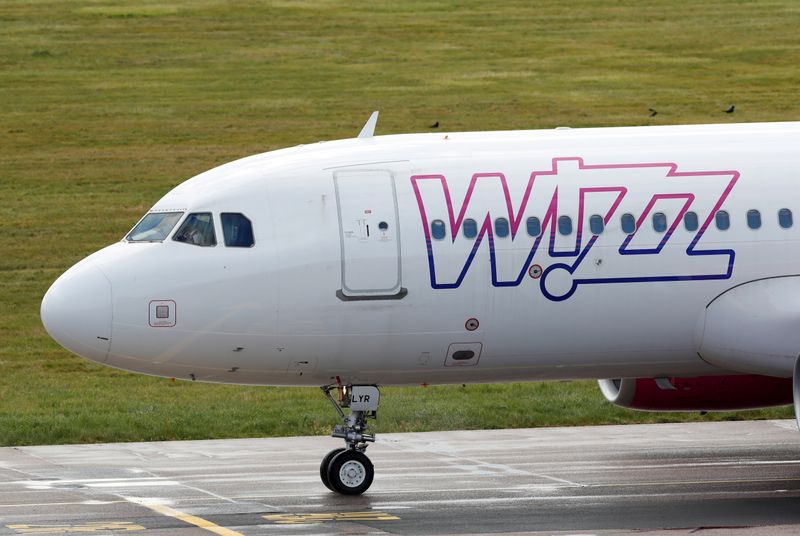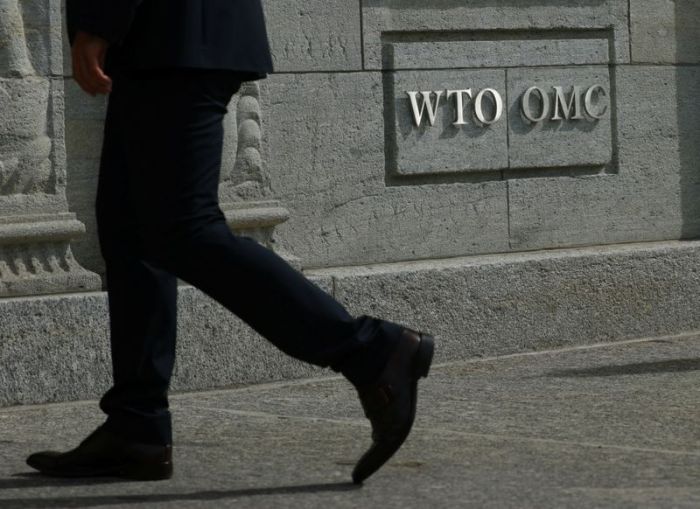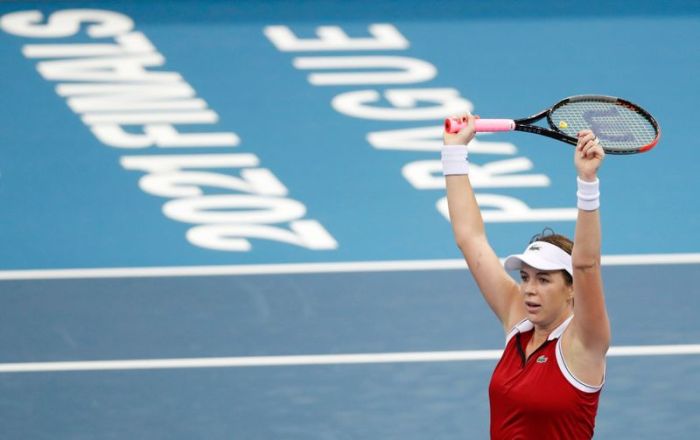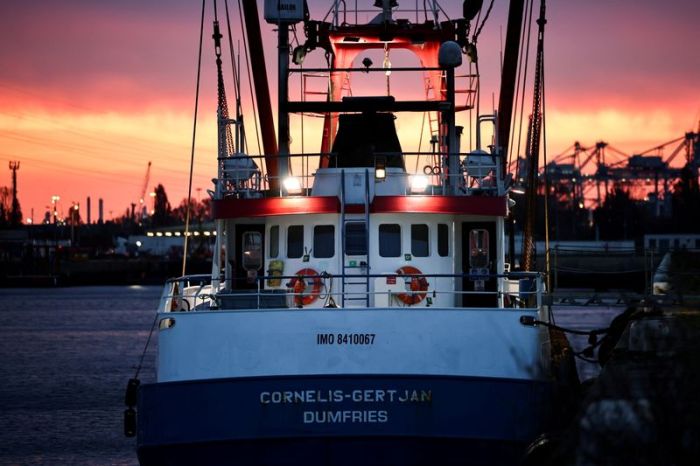LONDON (Reuters) -Hungary-based carrier Wizz Air warned that it faced headwinds over the winter but would be ready to take advantage of what it expects to be “exceptional opportunity” next summer, after it returned to profit for the July-September quarter.
For the three months to the end of September, budget airline Wizz posted a net profit of 57 million euros ($65.99 million), in line with analyst expectations, and said it was already back flying as much as it did before the coronavirus pandemic in 2019.
That puts Wizz, the fast-growing airline believed to be behind a rejected takeover bid for bigger rival easyJet in September, ahead of many competitors whose capacity remains at around 60%-80% of 2019 levels.
But chief executive Jozsef Varadi told Reuters on Thursday: “The next five months will be temporarily challenging”.
Wizz’s eastern European heartlands have lower vaccination rates than the markets it has expanded into in western Europe, plus like all airlines, it is facing rising fuel prices. It is currently unhedged on fuel.
For its third quarter, the October to December period, Wizz guided that it expected an operating loss of about 200 million euros and warned that this loss could carry on into the January March period, depending on operating conditions.
“This is a lot more cautious than anticipated and will require significant downgrades for this year’s forecasts,” Goodbody analyst Mark Simpson said.
Shares in the airline traded down 1.5% in early deals.
Ryanair, Europe’s biggest airline, on Monday also warned that fare discounting and higher fuel costs would hit its profits.
Looking to next summer, Varadi said that the expected end of coroanvirus restrictions and pent-up demand would make for a buoyant market.
During the pandemic, Wizz has grown its fleet of planes to add bigger, more fuel-efficient models, and added new routes.
“I see that we will be exceptionally well-positioned for taking advantage of the revamp of the market post-COVID,” he said.
($1 = 0.8638 euros)
(Reporting by Sarah Young; editing by Costas Pitas, Robert Birsel)























